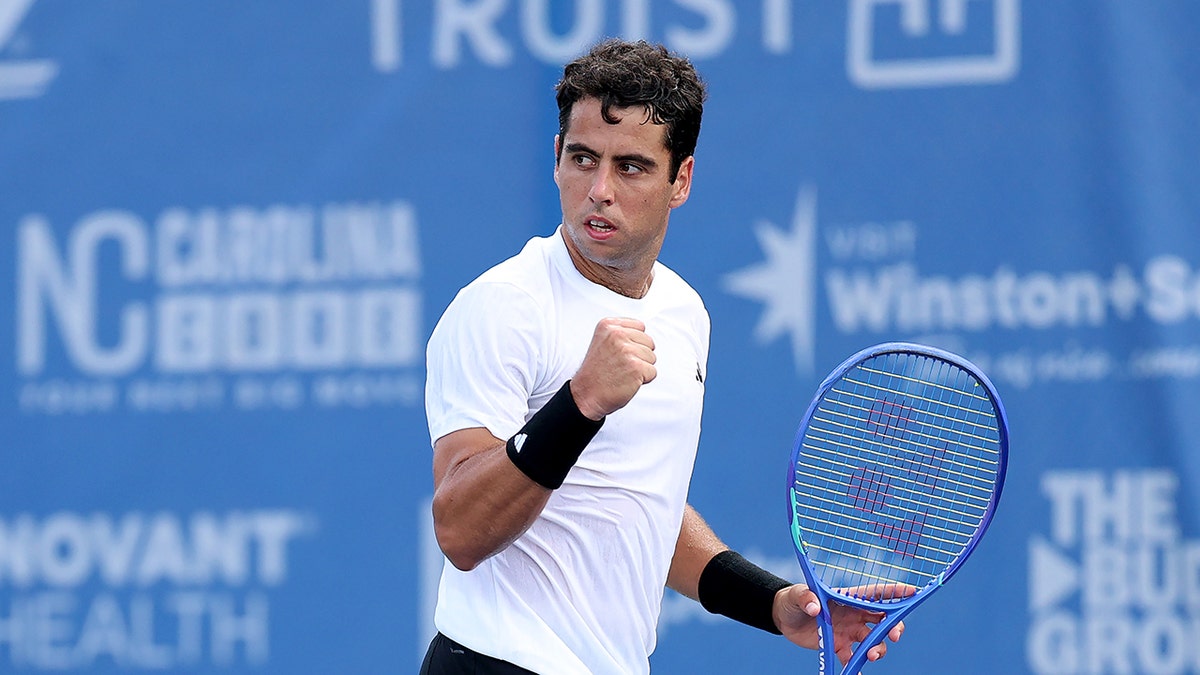Players argue at net over grunting after Munar beats Bergs in U.S. Open third round
Spain’s Jaume Munar and Belgium’s Zizou Bergs exchanged words at the net after Munar’s straight-sets victory, as the issue of loud vocalizations during rallies resurfaced at the tournament.
Players argue at net over grunting after Munar beats Bergs in U.S. Open third round
Spain’s Jaume Munar and Belgium’s Zizou Bergs exchanged words at the net after Munar’s straight-sets victory, as the issue of loud vocalizations during rallies resurfaced at the tournament.
Jaume Munar and Zizou Bergs confronted each other at the net following their third-round match at the U.S. Open in Flushing, New York, after Munar complained about repeated grunting from his opponent during the match. Munar won in straight sets, and the exchange — which drew attention from onlookers and media — occurred immediately after the final point as both players walked to the net.
Bergs, who addressed reporters after the match, said he had not been aware that his sounds were bothering Munar and said his actions were not intended as directed hostility. "He was apparently not so happy with my grunting during the match, which I didn’t know," Bergs said. "I said, ‘It’s nothing towards you at all.’" Munar told reporters that Bergs’ vocalizations had interrupted his rhythm on multiple occasions and that he had felt it affected play.

Tensions over grunting in tennis are longstanding and have periodically flared into public disagreements between players. At the U.S. Open, the incident between Munar and Bergs was one of several moments that drew post-match attention and commentary, underscoring how vocalizations can become a focal point when players perceive them as disruptive. On-court officials typically intervene only when there is a clear hindrance or intentional gamesmanship; within the rules, involuntary sounds are often treated differently from deliberate attempts to distract an opponent.
The confrontation followed the last point of the match, when Bergs approached Munar at the net to ask why Munar had raised the issue. Observers on the site filmed the brief exchange, which included both players speaking to each other and to nearby officials and members of the media. Both players were able to complete their customary post-match interviews, in which Bergs reiterated that he had not intended to direct his vocalizations toward Munar and Munar reiterated that the sounds had affected his play.

U.S. Open matches have seen occasional disputes over noise, line calls and court behavior, and tournament officials monitor on-court conduct under the Grand Slam rule set and the USTA’s code of conduct. Players who intentionally hinder opponents can be penalized with code violations, which may include warnings, point penalties or fines, but enforcement often requires an umpire to determine intent or clear interference.
Bergs, who advanced to the third round and took part in the post-match exchange after his loss, told reporters he had also experienced trash-talk from Munar late in the match, which contributed to the tense atmosphere. He sought to clarify his position at the net, saying his vocalizations were not aimed at Munar personally. Munar, speaking separately to media, conveyed his frustration about repeated loud sounds and the impact they had on his concentration.

The exchange revived broader conversation among players, commentators and fans about whether loud vocalizations during rallies constitute an unfair advantage. Some professionals and coaches argue that consistent, loud grunting can mask the sound of ball impact or disrupt an opponent’s timing, while others maintain that vocalizations can be an uncontrollable byproduct of exertion and should not be penalized unless clearly intentional.
Tournament referees and on-court umpires face practical challenges in adjudicating such disputes. Determining whether a sound is deliberate, whether it materially affects a point and whether it warrants a code violation requires real-time judgment in a high-pressure environment. At Grand Slam tournaments, players sometimes raise concerns with umpires during matches, but formal complaints and penalties are relatively uncommon compared with the number of matches played.
Following the net-side confrontation, both players completed the customary post-match obligations and left the stadium without further incident, according to officials and press accounts. The U.S. Open continues through its scheduled rounds, with organizers monitoring on-court conduct and player interactions as the tournament progresses.
The incident between Munar and Bergs is likely to keep the spotlight on the ongoing debate in professional tennis about vocalizations and gamesmanship, especially as higher-stakes matches draw greater scrutiny. Tournament organizers and the sport’s governing bodies have discussed the issue in the past, but consistent enforcement and clear standards remain topics of discussion among stakeholders in the sport.
Munar’s straight-sets victory moves him deeper into the U.S. Open draw, while Bergs’ early exit concluded his run at the event; both players will face questions about the match and its aftermath in future interviews. For now, the exchange at the net added another chapter to an enduring conversation in tennis about where to draw the line between natural physical response and disruptive behavior on court.